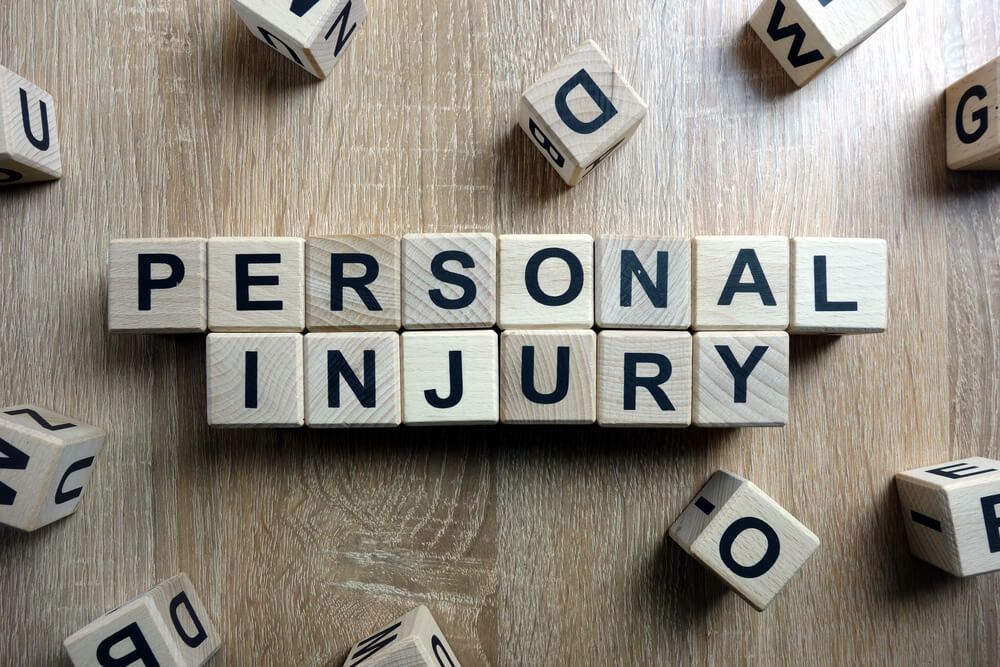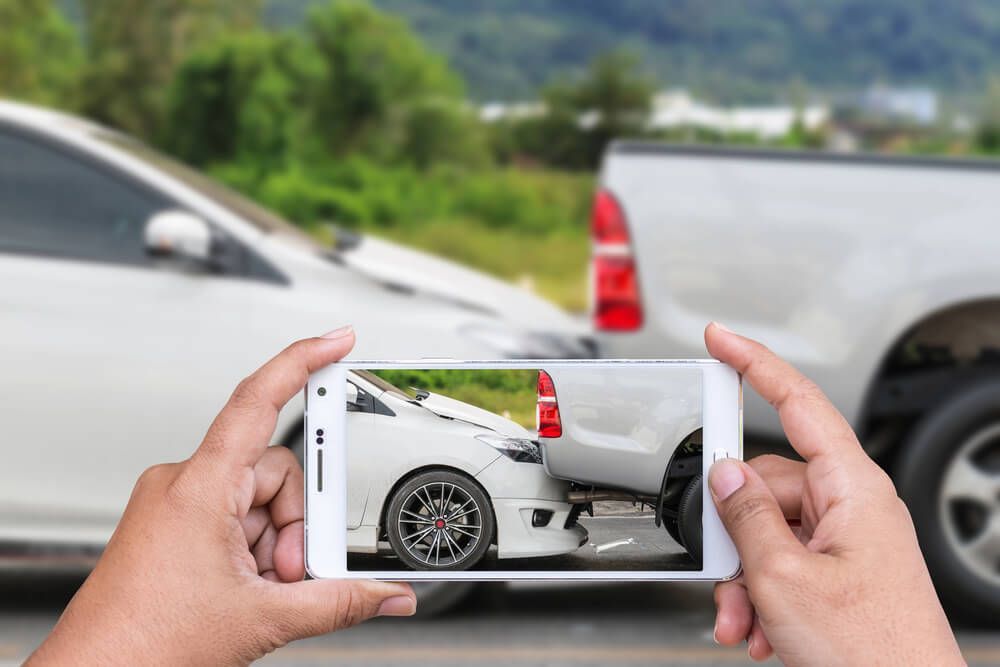18 Mistakes To Avoid in a Personal Injury Claim
Recent Blog Posts
18 Mistakes To Avoid in a Personal Injury Claim

Personal injury claims can be complicated, particularly when you're recovering from an injury that has changed your life. Whether the injury is minor or severe, the compensation you receive can significantly affect your financial future, especially if you are dealing with permanent or long-term consequences. The legal process can seem overwhelming, and it’s all too easy to make avoidable mistakes in personal injury claims.
Many people face challenges in navigating the claims process, from dealing with insurance companies to determining the full extent of their injuries. With so much at stake, it's essential to ensure that every step you take is measured and informed. Learning more about the process and hiring an attorney can help you avoid mistakes that can cost you time, money or even the compensation you deserve.
Common Mistakes in Personal Injury Cases
Mistakes can arise at every stage of a personal injury claim, and unfortunately, they can be costly. Insurance companies, defense attorneys and other parties involved in the case are often hoping that you slip up, and they’ll take advantage of any misstep. They are highly skilled at identifying weaknesses in your case and will use any mistake to undermine your credibility or reduce the compensation you're entitled to.
You need to not only understand what these mistakes are, but also why they are harmful and how they might be used against you. By being aware of these common mistakes, you can better protect your case and increase your chances of a successful outcome.
1. Delaying Medical Treatment
Many individuals make the mistake of not seeking immediate medical attention after an accident, thinking they’re not badly injured or that their injuries are minor. However, even minor symptoms can be the first sign of a more serious issue, like internal injuries or a concussion. Delaying treatment means that there is no immediate record of your injuries, which is central to your case.
Insurance companies will likely argue that your injuries weren’t as serious as you claim if you wait to seek medical help. They could suggest that your injuries were caused by something else, and this could weaken your case and reduce the settlement amount you’re offered.
2. Admitting Fault or Apologizing
It’s common for people to apologize or even admit fault right after an accident, especially if they think they made a mistake. However, even a simple “I’m sorry” can be used against you later in your claim. Admission of fault can dramatically alter the way your claim is handled, leading to reduced or denied compensation.
By admitting fault, you might inadvertently accept partial liability for the accident, which can significantly reduce your chances of receiving full compensation. Even if you’re partially at fault, don’t acknowledge it unless advised by your attorney.
3. Not Documenting the Incident
Failing to document the accident scene, injuries, and any other relevant details can be a major mistake that will impact your personal injury claim. Whether it’s taking photographs of the scene, collecting witness statements or securing a police report, these documents form the basis of your case.
Without proper documentation, your claim could be weakened. Insurance companies or opposing attorneys may argue that the accident didn’t happen the way you describe it or that you lack the evidence to prove the severity of your injuries.
4. Settling Too Soon
Insurance companies may offer an early settlement in an attempt to close the case quickly and save money. However, these offers are often much lower than what you actually deserve. Accepting a lowball offer could leave you without compensation for future medical treatment, lost wages or pain and suffering.
Once a settlement is reached and signed, it is typically final. In most cases, you cannot reopen a settled case or seek additional compensation later, even if your injuries worsen or you incur more expenses. That’s why it’s so important to fully understand the long-term implications of your injuries before agreeing to a settlement.
5. Failing To Keep Track of Expenses
When you’re dealing with an injury, it’s easy to forget to track the costs related to your recovery. However, keeping a detailed record of medical bills, lost wages, transportation costs and any other expenses related to your injury is essential for calculating your claim’s actual value.
Without a comprehensive record of your expenses, you may fail to include all of your damages in your claim. This could lead to an inadequate settlement that doesn’t fully cover your financial losses.
6. Posting on Social Media
Posting on social media about your injury or recovery process can be tempting, especially if you want to let your friends and family know all at once. However, these posts can be easily misconstrued or taken out of context, especially if the other party is looking for ways to undermine your claim.
Social media posts can be used as evidence against you. Even if you’re simply sharing an update with friends and family, opposing attorneys might use your posts to argue that your injuries aren’t as severe as you claim.
7. Not Following Your Doctor’s Advice
It’s important to adhere to your doctor’s treatment plan after an injury to ensure proper recovery. Ignoring prescribed treatments or missing appointments can create doubt about the severity of your injuries and your commitment to recovery.
If you fail to follow your doctor’s advice, insurance companies or opposing parties may argue that your injuries aren't as severe as you claim, or that you’re not actively seeking the best possible recovery. This could ultimately affect the value of your claim and reduce the settlement you're offered.
8. Underestimating the Long-Term Effects of Injuries
It’s easy to focus on immediate recovery and underestimate the long-term effects of your injuries. Many injuries require ongoing treatment or could affect your quality of life for years to come. Failing to account for these long-term effects can lead to an unfair settlement.
Settling before understanding the full extent of your injuries might result in you accepting an amount that doesn’t cover future medical costs or the impact on your quality of life.
9. Not Hiring an Attorney
Many people think they don’t need a lawyer for their personal injury claim, especially if their injuries seem minor. However, navigating the claims process alone can be difficult, and insurance companies are skilled at minimizing payouts. Having an experienced attorney by your side ensures you have someone who understands the law and can negotiate on your behalf.
Handling the case on your own can lead to costly mistakes that reduce your compensation. An attorney ensures your rights are protected and helps you secure the maximum compensation possible.
10. Failing To File the Claim on Time
Every state has a statute of limitations that limits the amount of time you have to file a personal injury claim. Missing this deadline means you could lose your right to pursue compensation altogether.
Failing to file your claim within the allowed time frame will result in the dismissal of your case, leaving you with no legal recourse to seek compensation for your injuries.
11. Failing To Understand the Insurance Policy
Personal injury claims often involve insurance companies, and understanding your insurance policy, or that of the liable party, is very important. Policies can vary greatly, and failure to fully understand them might result in missed opportunities to recover damages.
If you don’t understand your policy’s coverage, you might miss out on compensation that you’re entitled to. This could lead to an insufficient settlement.
12. Overstating or Understating Injuries
It’s tempting to exaggerate injuries to receive a larger settlement or downplay them to settle quickly. Both of these approaches are problematic. Overstating injuries can make you appear dishonest, while underestimating them may lead to insufficient compensation.
Both exaggerating and downplaying injuries can harm your credibility. It’s important to be honest about the severity of your injuries to ensure you receive fair compensation.
13. Ignoring Emotional Distress or Pain and Suffering
While physical injuries are often the primary focus of personal injury claims, emotional distress and pain and suffering are just as important. Many people forget to include these non-economic damages in their claim, resulting in a settlement that doesn’t fully compensate them for their experience.
By failing to account for emotional distress or pain and suffering, you might receive a settlement that only covers physical injuries, leaving
you without compensation for the full scope of your losses.
14. Not Seeking Independent Medical Evaluations
Insurance companies may require you to undergo an Independent Medical Examination, but this examination is typically performed by a doctor chosen and paid by the insurance company. To ensure your injuries are properly assessed, it’s a good idea to seek an independent medical evaluation from a doctor you trust.
The IME conducted by the insurance company’s doctor could downplay the severity of your injuries, which could hurt your case. On the other hand, an independent evaluation from a neutral doctor helps provide an accurate, unbiased assessment of your condition and can strengthen your position in the claim.
15. Talking Directly to the Insurance Adjuster Without Legal Advice
It might seem like a simple task to speak with the insurance adjuster, but doing so without legal counsel can lead to problems. Insurance adjusters are trained to minimize payouts, and they may ask questions that could harm your case or pressure you into settling too soon. Without an attorney, you may unknowingly make statements that hurt your chances of receiving full compensation.
It’s important to consult with an attorney before communicating with the insurance adjuster. Your lawyer can advise you on what to say and help protect your rights. Any information you provide should be carefully considered to avoid weakening your case.
16. Signing Documents Without Legal Review
Insurance companies often present a variety of documents for you to sign during the claims process. Signing documents without fully understanding them can be a costly mistake. These documents could contain language that limits your compensation, waives your rights or binds you to a settlement that doesn't cover all your expenses.
Before signing any paperwork, have your attorney review the documents. They can ensure that you fully understand the terms and that you're not unknowingly agreeing to something that might undermine your case.
17. Not Preserving Physical Evidence
In many personal injury cases, physical evidence plays an essential role in supporting your claim by providing tangible proof of the cause of your injury. Whether it's a defective product, a broken helmet or a damaged car, preserving these items can serve as key evidence in proving your case. Many people, however, forget to save such items or dispose of them inadvertently.
18. Giving Inconsistent Statements
During a personal injury claim, consistency is key. Insurance companies or opposing attorneys may try to find any discrepancies between statements you make at different times. This includes things you say to your doctor, on social media, to the insurance adjuster or in any other setting.
Anything you say—no matter when or to whom—can potentially be used as evidence against you. That’s why it’s essential to stay consistent and truthful at all times. Even small inconsistencies in your story can be used to undermine your credibility and hurt your case.
Be mindful of what you say throughout the claims process and avoid making statements that don’t align with the facts. If you're unsure about something, don’t guess or make something up. It's better to say you don’t remember than to provide incorrect information. Always consult with your attorney before providing any information to ensure your statements remain consistent, accurate and truthful.
An Attorney Can Help You Avoid Mistakes in a Personal Injury Claim
At Sargon Law Group, we specialize in personal injury and accident cases. Our team is dedicated to supporting you through each phase of the claims process. We work tirelessly to help our clients secure the compensation they need and the closure they deserve.
Contact us to learn how we can help you avoid mistakes in your personal injury claim. Let us help you with your case and ensure you get the compensation you're entitled to.





